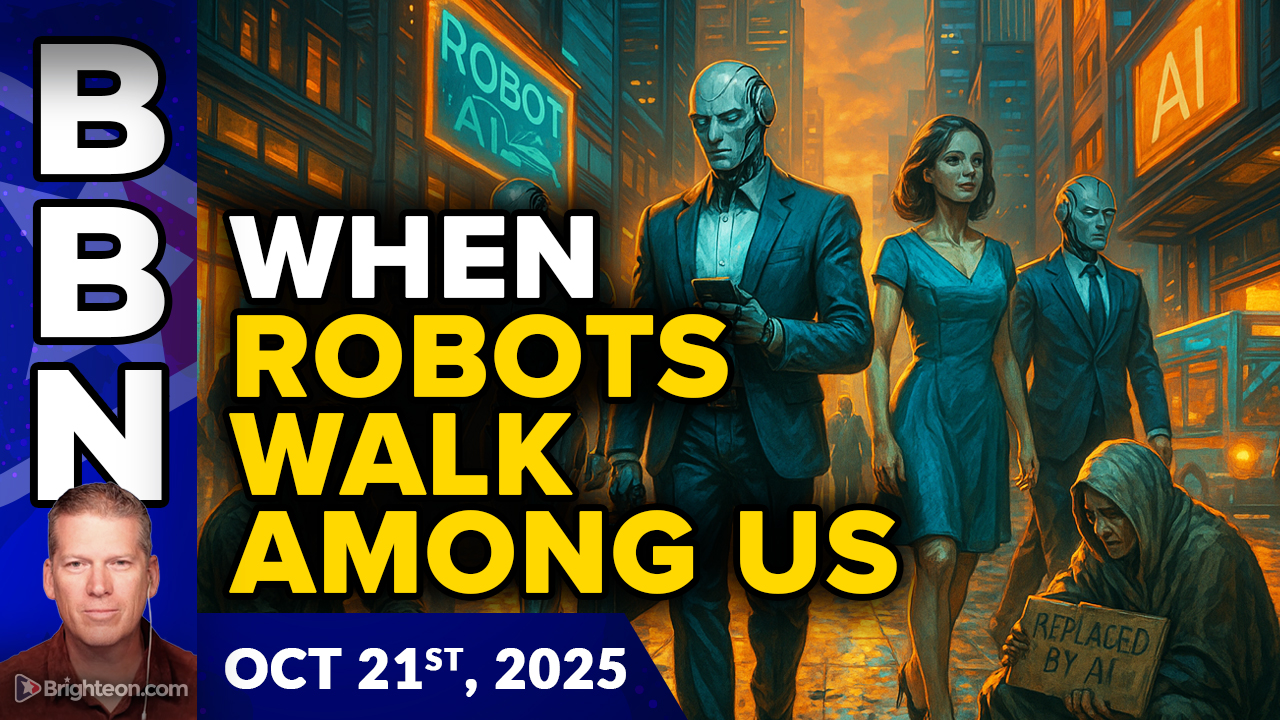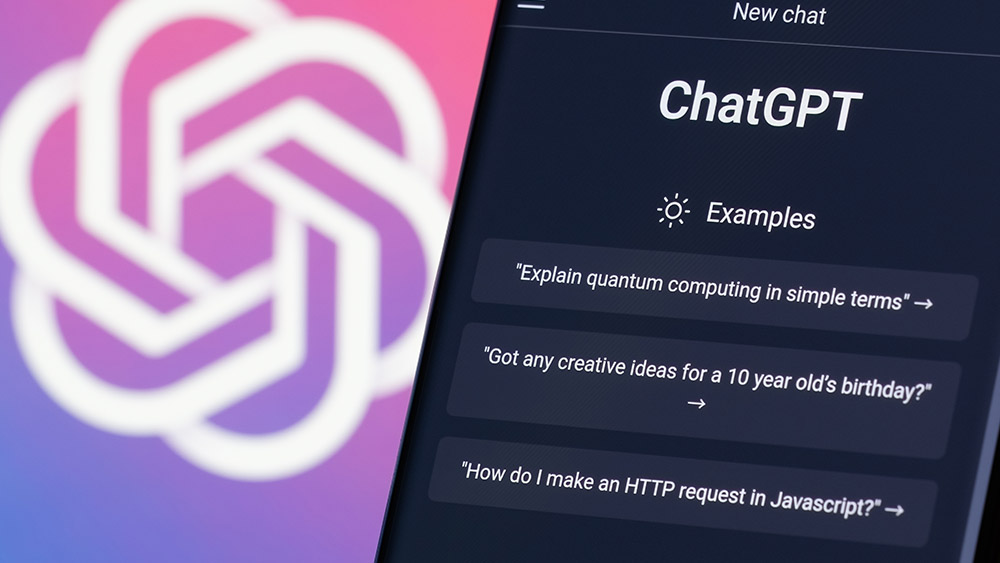Microsoft warns of AI-driven cyber espionage surge from China, Russia targeting U.S.
10/20/2025 / By Belle Carter

- China and Russia are using AI to enhance cyberattacks, including AI-generated disinformation, phishing scams and deepfake impersonations of officials, making attacks harder to detect. Microsoft blocked 1.6 million fake accounts per hour, highlighting the massive scale of the threat.
- Beijing’s top targets include U.S. defense infrastructure, South China Sea disputes and critical national assets, aiming to steal military and economic secrets while disguising operatives as Americans online.
- Beyond Ukraine, Russia now targets NATO allies and small businesses aiding Kyiv, while Iran ramps up attacks on shipping firms to disrupt global trade.
- Hackers increasingly bypass security by recruiting insiders or stealing credentials, particularly in AI, quantum computing, biotech and defense sectors. Password attacks surged 30 percent in early 2024, accounting for 97 percent of identity breaches.
- Microsoft urges governments and businesses to adopt AI-driven security tools, improve employee training and proactively counter phishing/social engineering as cyber warfare becomes a strategic tool for hostile nations.
Foreign adversaries—particularly China and Russia—are rapidly deploying artificial intelligence (AI) to amplify cyberattacks against the United States, Microsoft warned in its annual Digital Defense Report.
The tech giant detected a sharp rise in AI-generated disinformation, phishing scams and impersonation schemes, with the U.S. bearing the brunt of these operations. State-backed hackers are leveraging AI to craft convincing fake emails, clone government officials’ voices and fabricate digital identities, making their campaigns harder to detect and trace.
Microsoft blocked an astonishing 1.6 million fake account creation attempts per hour across its platforms, underscoring the scale of the threat. The report highlights China’s aggressive cyber espionage targeting U.S. defense infrastructure, the South China Sea disputes and critical national assets—while Russia expands its attacks beyond Ukraine to NATO allies and small businesses supporting Kyiv.
AI has revolutionized cyber operations, enabling hackers to automate phishing emails, generate deepfake audio of political leaders and mass-produce fraudulent social media profiles. Microsoft identified over 200 instances of AI-generated disinformation by state actors in July 2024 alone—a fourfold increase from July 2023.
“Everyone—from industry to government—must be proactive to keep pace with increasingly sophisticated attackers,” said Amy Hogan-Burney, Microsoft’s vice president for customer security and trust. “AI makes operations easier to scale, more effective and harder to trace.”
“China remains the most prolific cyber aggressor, conducting extensive espionage across the U.S., Asia and Latin America to gain economic and military advantages,” said BrightU.AI‘s Enoch. Meanwhile, Russia has widened its focus beyond Ukraine, targeting NATO members and businesses aiding Kyiv. Iran has also escalated attacks on shipping firms to disrupt global commerce.
China’s stealthy infiltration tactics
Microsoft uncovered a troubling trend: Chinese-linked operatives masquerading as Americans by listing U.S. locations, posting patriotic slogans and engaging in domestic political debates. These tactics suggest a coordinated effort to blend in while gathering intelligence or sowing discord.
China’s top cyber priorities include:
- The South China Sea (amid territorial disputes with neighboring nations)
- The U.S. defense industrial base (seeking military and technological secrets)
- Critical infrastructure (potentially laying groundwork for disruptive attacks)
North Korea has taken a different approach, deploying thousands of state-linked IT workers to infiltrate foreign companies—either stealing data or extorting employers when caught.
Hackers are increasingly bypassing firewalls by exploiting insiders—either recruiting them or stealing their credentials. China and Russia have targeted professionals in AI, quantum computing, biotech and defense sectors through academic or business affiliations.
“Rather than breaking in, adversaries are signing in,” Hogan-Burney noted. Password attacks surged by nearly a third in early 2024, accounting for over 97 percent of identity breaches detected by Microsoft.
As AI-powered cyber threats escalate, Microsoft urges governments and businesses to bolster defenses, adopt AI-driven security tools and enhance employee training against phishing and insider risks. The report underscores a sobering reality: Cyber warfare is no longer confined to shadowy hackers but is now a strategic tool wielded by nations—with the U.S. squarely in their crosshairs.
“The breadth and scale of Chinese targeting operations continue to stand out,” Microsoft warned. Without swift action, the digital battlefield will only grow more perilous.
Watch the video below that talks about cybersecurity and preparedness.
This video is from the Brighteon Highlights channel on Brighteon.com.
Sources include:
Submit a correction >>
Tagged Under:
AI, big government, Big Tech, China, cyber attacks, cyber terrorism, cyber war, Dangerous, deepfakes, Digital Defense Report, future tech, hacking, Microsoft, national security, phishing, privacy watch, Russia, Spygate, surveillance, tech giants, technocrats
This article may contain statements that reflect the opinion of the author
RECENT NEWS & ARTICLES
COPYRIGHT © 2017 FUTURETECH.NEWS
All content posted on this site is protected under Free Speech. FutureTech.news is not responsible for content written by contributing authors. The information on this site is provided for educational and entertainment purposes only. It is not intended as a substitute for professional advice of any kind. FutureTech.news assumes no responsibility for the use or misuse of this material. All trademarks, registered trademarks and service marks mentioned on this site are the property of their respective owners.



















